
Adding rocks to an aquarium is a common part of aquascape. In addition to being attractive and enhancing the aquarium décor, fish tank rocks provide fish hiding places and security.
Best Aquarium Rocks
An important consideration for the best aquarium rocks to choose is that they don’t dissolve in the water. Limestone and such rocks that decompose in water increase the amount of dissolved minerals in the water. This change in water chemistry could harm angelfish. It is the reason shells aren’t used in a freshwater aquarium.

Putting rocks in boiling water kills harmful bacteria. Scrubbing with a stiff bristled brush removes loose debris. Putting it in clean water and scrubbing with a brush will break down the rock if it is soft. Leaving the rock in the water and checking for cloudiness determines if it will dissolve. If the water is cloudy, don’t use the rock in an aquarium. Even if a rock isn’t limestone, it may contain other minerals that could harm the water quality and fish.
The best way to acquire rocks is to buy them from an aquarium store with a guarantee they are safe for freshwater aquariums.
Habitat
If setting up a habitat aquarium, use rocks consistent with the area where the fish live. Freshwater discus and angelfish habitat is in the Amazon River Basin. Streams in the area have leaves, rocks, brush, tree limbs and other debris in them. The rocks are smooth river rocks. To simulate a natural angelfish habitat use smooth rocks.
Algae and other plant material will grow on rocks. This vegetation is an additional source of food. Rocks scattered around the aquarium provides more surface area for beneficial bacteria to grow. They can be arranged to form caves and hiding places. Providing a natural setting for fish isn’t necessary, but enjoyable for the owner, and hopefully for the angelfish.
Rough Rocks
Rough rocks can be an attractive addition to an aquarium. Rocks with jagged edges may cause abrasions or other injuries to fish if they brush against rough rocks. These injuries may be enough to allow parasites and fungus to attach to the fish.
General Considerations
Rocks are heavy. Avoid placing too many in a concentrated location as it is possible the aquarium glass or plastic will crack or break. Rocks make it harder to clean the tank. Chasing fish around the rocks make it harder to catch them. Even with these negatives, rocks are a pleasant addition to an aquarium.
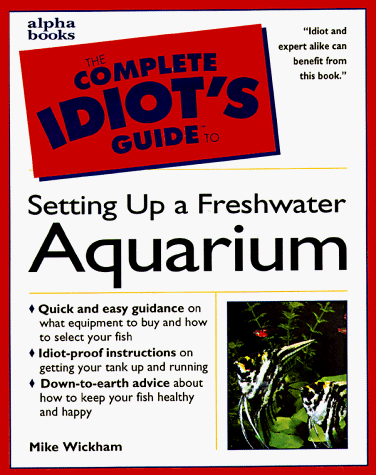 Changing Filter Cartridge During New Tank Syndrome
Starting your first fish tan
Changing Filter Cartridge During New Tank Syndrome
Starting your first fish tan
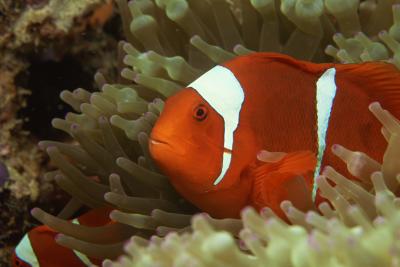 Clown Fish Small Tank Set Up for Beginners
Clown Fish Small Tank Set Up for Beginners
Clown Fish Small Tank Set Up for Beginners
Clown Fish Small Tank Set Up for Beginners
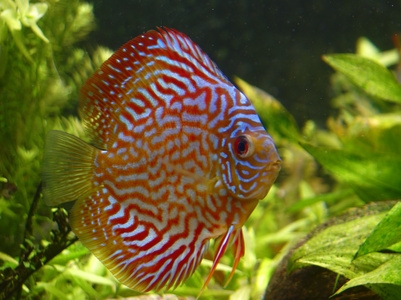 Discus Fish Care & Feeding
Discus Fish Care & Feeding
Discus
Discus Fish Care & Feeding
Discus Fish Care & Feeding
Discus
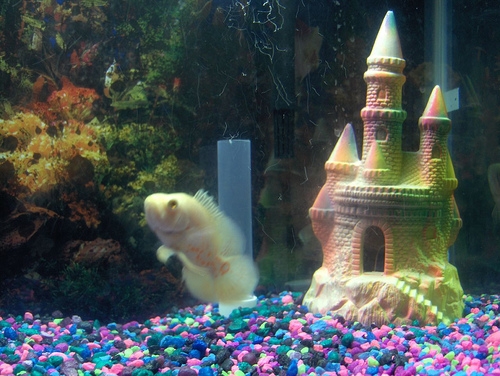 How to Make a Salt Water Fish Tank
How to Make a Salt Water Fish Tank
How
How to Make a Salt Water Fish Tank
How to Make a Salt Water Fish Tank
How
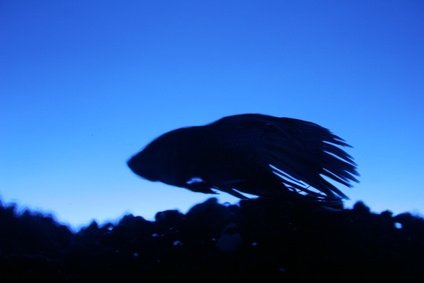 How to Take Care of The Baby Betta Fish
How to Take Care of The Baby Betta Fish
How to Take Care of The Baby Betta Fish
How to Take Care of The Baby Betta Fish
Copyright © 2005-2016 Pet Information All Rights Reserved
Contact us: www162date@outlook.com